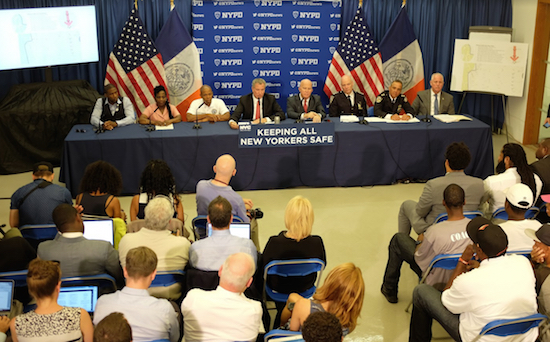City Hall announces major revamp of Brooklyn’s J’Ouvert Festival
Plan Will Model West Indian Day Precursor After New Year’s Eve in Times Square

Mayor Bill de Blasio joined Brooklyn Borough President Eric Adams, City Councilmember Jumaane Williams, NYPD Commissioner James O’Neill and other senior NYPD officials on Monday to outline the city’s plan for a newer, safer J’Ouvert celebration scheduled for Labor Day morning.
“Last year, as everyone knows,” de Blasio began, “we attempted a series of major changes and a tremendous amount more police presence and additional resources, and yet we did not get the result we sought. Lives were lost and that’s unacceptable to all of us,” he concluded, speaking about the shooting deaths in 2016 of Tiarah Poyou and Tyreke Borel.

Brooklyn Boro
View MoreNew York City’s most populous borough, Brooklyn, is home to nearly 2.6 million residents. If Brooklyn were an independent city it would be the fourth largest city in the United States. While Brooklyn has become the epitome of ‘cool and hip’ in recent years, for those that were born here, raised families here and improved communities over the years, Brooklyn has never been ‘uncool’.